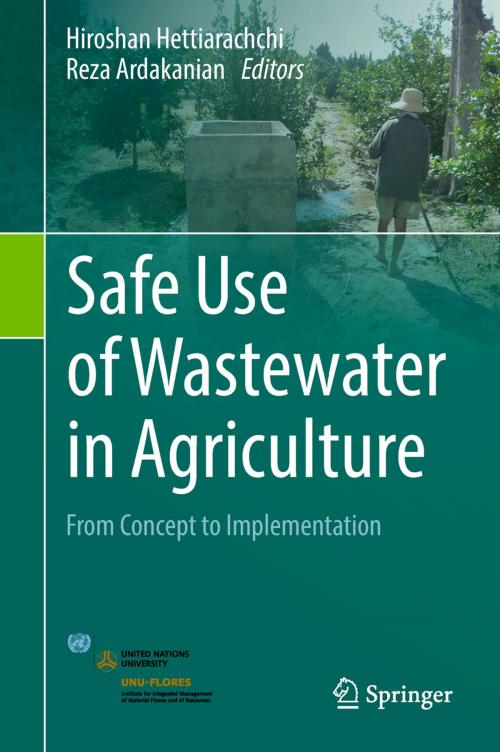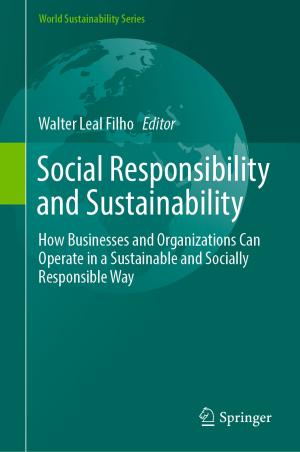Safe Use of Wastewater in Agriculture
From Concept to Implementation
Nonfiction, Science & Nature, Technology, Environmental, Agriculture & Animal Husbandry| Author: | ISBN: | 9783319742687 | |
| Publisher: | Springer International Publishing | Publication: | March 9, 2018 |
| Imprint: | Springer | Language: | English |
| Author: | |
| ISBN: | 9783319742687 |
| Publisher: | Springer International Publishing |
| Publication: | March 9, 2018 |
| Imprint: | Springer |
| Language: | English |
This book offers a broad and global level description of the current status of wastewater use in agriculture and then brings the readers to various places in the MENA Region and Europe to explain how some countries and regions have addressed the challenges during implementation. On a global scale, over 20 million hectares of agricultural land are irrigated using wastewater. This is one good, and perhaps the most prominent, example of the safe use potential of wastewater. Water scarcity and the cost of energy and fertilisers are among the main factors driving millions of farmers and other entrepreneurs to make use of wastewater. In order to address the technical, institutional, and policy challenges of safe water reuse, developing countries and countries in transition need clear institutional arrangements and more skilled human resources, with a sound understanding of the opportunities and potential risks of wastewater use. Stakeholders in wastewater irrigation who need to implement from scratch or improve current conditions, find it difficult to gather the necessary information on practical implementation aspects. The main objective of this book is to bridge that gap.
This book offers a broad and global level description of the current status of wastewater use in agriculture and then brings the readers to various places in the MENA Region and Europe to explain how some countries and regions have addressed the challenges during implementation. On a global scale, over 20 million hectares of agricultural land are irrigated using wastewater. This is one good, and perhaps the most prominent, example of the safe use potential of wastewater. Water scarcity and the cost of energy and fertilisers are among the main factors driving millions of farmers and other entrepreneurs to make use of wastewater. In order to address the technical, institutional, and policy challenges of safe water reuse, developing countries and countries in transition need clear institutional arrangements and more skilled human resources, with a sound understanding of the opportunities and potential risks of wastewater use. Stakeholders in wastewater irrigation who need to implement from scratch or improve current conditions, find it difficult to gather the necessary information on practical implementation aspects. The main objective of this book is to bridge that gap.















